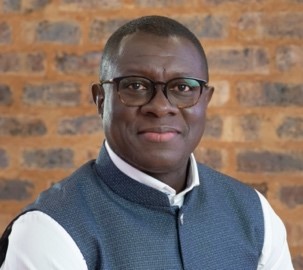

Keynote speaker: Dr. Allison Lassiter – “Scaling adaptation of urban water with connected, decentralized systems“
Today, more than four billion people live in urban areas. By 2050, this is projected to be more than seven billion. Population growth is putting pressure on all urban systems. Upgrading and adapting water systems is essential to both the health and productivity of urban residents and surrounding ecosystems. This presentation discusses three major goals when adapting urban water systems and three useful tools to scale and reach these goals. One of the most fundamental is urban water. Three major water managements goals are as follows: First, it will be necessary to accommodate greater variability in water supply and demand. More intense storms and increasing heat will mean most water systems will be exposed to a greater range of conditions. Second, most water systems will experience declining water quality, due to both climate change and human activities. Third, it is imperative to ensure sustainable yield from source waters, withdrawing no more than is replaced.
Keynote speaker: Mrs. Raquel Moses – “Convening and creating economies of scale towards climate resilient development through project pipeline development”
Achieving climate-resilient economies and societies will necessitate not only increasing the billions of financial flows for adaptation, but also shifting broader — public and private — financial flows and investment away from potentially mal-adapted activities towards those that contribute to climate-resilient economies and societies. Article 2.1c of the Paris Agreement includes the objective of coordinating finance with climate-resilient development, but efforts to define and, ultimately, operationalize this idea are still in the early stages. Moving forward with this goal still faces considerable conceptual and practical barriers. Climate change is a pressing issue for all of us, but it is the global south who are on the front lines. Despite this, we have seen incredible innovation, creativity and adaptation from these communities in the face of a changing world. Our mission is to connect the resources and support to these communities to ensure they have the tools they need to succeed and thrive in this new landscape.
Keynote speaker: Dr. Cheikh Mbow – “A resilient food system to bridge the adaptation gap in Africa“
Climate change affects faster and deeper the drylands in Africa than other systems with severe vulnerabilities to people and ecosystems. Unlocking African food system innovations for resilience and prosperity requires more than current development models to embrace fast tracking changes both in terms of productivity and land resources protection. To build sustainable food systems, systemic resilience, healthy ecosystems and economies, and prosperous communities, we should leverage latent synergies between several land related initiatives. These changes limit the possibilities to quickly change the food system and puts resilience and natural asset wealth at risk to sustain the operational requirements of adaptation needs. Resilience, under these conditions, will necessitate stronger deliberate processes that lead to unleashing these potentials to sustain a rapidly growing population under severe climate impacts. Among the outcomes that lead to optimizing resources opportunities, are the knowledge and action to support both traditional and innovative options for current and future livelihoods. Sustainable intensification of land use will require blended investments in land, water, and soil fertility management, a nexus investment, including food loss and market incentives. Adapted mechanization also has the potential to expand production; improve timeliness of operations; crop processing, irrigation and rural infrastructure improvement; compensate for labour shortages; and alleviate drudgery.
 Dr. Allison Lassiter
Dr. Allison Lassiter
 Mrs. Racquel Moses
Mrs. Racquel Moses
 Dr. Cheikh Mbow
Dr. Cheikh Mbow